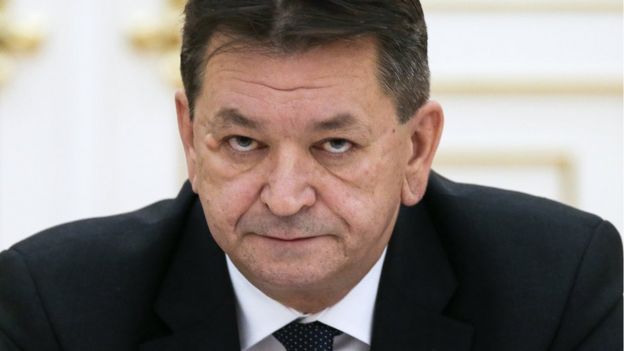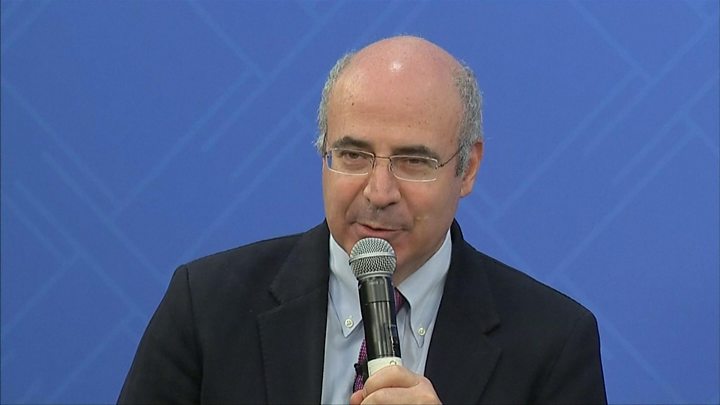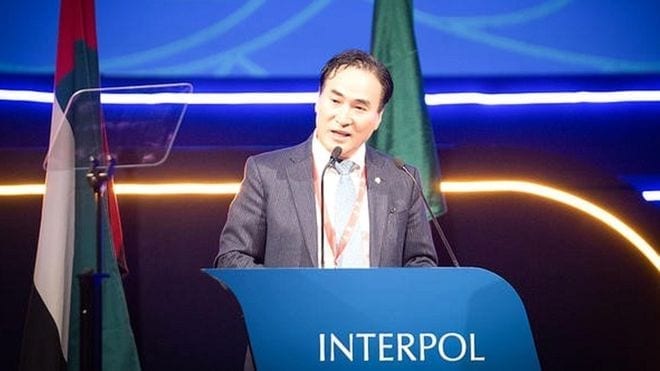Kim Jong-yang had been acting president since Meng Hongwei’s disappearance photo: INTERPOL[/caption]
Interpol has elected South Korean Kim Jong-yang as its president, rejecting the Russian frontrunner who had been accused of abusing the international police body’s arrest warrant system.
Mr Kim was chosen by Interpol’s 194 member states at a meeting of its annual congress in Dubai. He beat Russia’s Alexander Prokopchuk, who had been widely tipped to win. But there was growing concern that Mr Prokopchuk would use the role to target critics of Russia’s President Putin. Moscow said Mr Prokopchuk would continue to serve as an Interpol vice-president and help strengthen the organisation’s “position in the international police community”. On Tuesday, it hit back at what it called a “campaign aimed at discrediting” the Russian candidate. Russian Alexander Prokopchuk was widely considered the frontrunner for the post Photo: GETTY IMAGES[/caption]
Russian Alexander Prokopchuk was widely considered the frontrunner for the post Photo: GETTY IMAGES[/caption]Who is Kim Jong-yang?
Mr Kim, 57, is a former South Korean police officer who once served as head of police in Gyeonggi, the country’s most populous province. He was already senior vice-president of Interpol and had been serving as acting president since Mr Meng’s disappearance. He will serve out the remaining two years of Mr Meng’s term. Although his role as president is largely ceremonial – the day-to-day running of Interpol is led by Secretary-General Jürgen Stock – it does wield influence. Upon his election, Mr Kim said: “Our world is now facing unprecedented changes which present huge challenges to public security and safety. “To overcome them, we need a clear vision: we need to build a bridge to the future.”Why was Mr Prokopchuk controversial?
Mr Prokopchuk is a Russian general who worked for many years with Russia’s interior ministry. While he was Interpol’s Moscow bureau chief, he was accused of abusing the so-called red notice system – international arrest warrants – to target critics of the Kremlin. No such accusations have been levelled at him while he has been one of Interpol’s four vice presidents. But there had been growing fears among Russian human rights groups and officials from other countries, including the US and the UK, that Moscow would use his position as president to target its political opponents. One of those warning against his election was British-based businessman and Kremlin critic Bill Browder, who was held in Spain earlier this year after a Russian Interpol request.
[caption id="" align="alignnone" width="720"] Bill Browder: Russian Interpol candidate ‘most inappropriate’[/caption]
Bill Browder: Russian Interpol candidate ‘most inappropriate’[/caption]
 Bill Browder: Russian Interpol candidate ‘most inappropriate’[/caption]
Bill Browder: Russian Interpol candidate ‘most inappropriate’[/caption]













